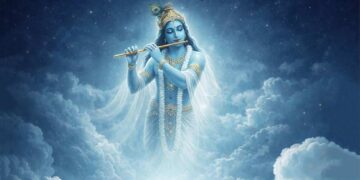
Unveiling the Ancient Future
In a world caught in the throes of upheaval—marked by moral erosion, spiritual confusion, and global uncertainty—Sachin Mohapatra’s Bhavishya Malika (English) arrives as both a whisper from the past and a thunderous call to the present. This isn’t just a translation. It’s a resurrection of one of India’s most sacred and hidden prophetic texts, long buried in palm-leaf manuscripts, passed down through silence and secrecy.
Now, in a voice both scholarly and urgent, Mohapatra brings forth a decoded version of the Bhavishya Malika—a scripture said to contain foretellings of the Kali Yuga, the current age of decline, and the coming of the Kalki Avatar, the final incarnation of Lord Vishnu.
The Forgotten Manuscript That Speaks to Today
The Bhavishya Malika, authored by the Panchasakha—five mystic seers of Odisha—has long remained in the shadows, preserved in fragments, cryptic verses, and sacred traditions. Until now, its complexity and esoteric language rendered it nearly impenetrable for modern readers.
Mohapatra’s work is groundbreaking because it does not merely translate—it decodes. With meticulous effort and spiritual responsibility, he unearths the text’s essence and recasts it into a form that is both accessible and reverent. What we receive is not a diluted interpretation, but a carefully condensed vision of a civilization’s prophetic blueprint.
Prophecy in the Age of Chaos
At the heart of the Bhavishya Malika is a mirror—one that reflects the Kali Yuga’s descent into moral decay, spiritual confusion, and widespread deception. The book confronts these realities head-on, interpreting centuries-old warnings in light of present-day crises.
But it doesn’t stop at doom. Instead, it opens the portal to hope—speaking of a time when the Kalki Avatar will emerge to restore balance, reset dharma (cosmic order), and ignite a spiritual renaissance. The text’s predictions are not vague abstractions but eerily specific descriptions that resonate with today’s headlines and human condition.
Readers are left to wonder: Are we already in the thick of what the seers foresaw? And if so, what are we being asked to remember—or prepare for?
A Rare Blend of Scholarship and Spiritual Urgency
What sets Bhavishya Malika (English) apart from other works in the genre of prophecy and spiritual revival is its unique blend of deep-rooted research, spiritual sensitivity, and narrative clarity. Mohapatra is not simply a translator—he is a seeker. And his approach to this ancient text reflects that reverence.
His commentary and summaries remain faithful to the tone and texture of the original verses, while also making them intelligible for a contemporary reader who may be unfamiliar with Vedic thought, Hindu cosmology, or the lineage of the Panchasakha. Each prophecy is contextualized, not just in terms of its historical or mythological roots, but in its relevance to the collective anxiety and spiritual hunger of our times.
More Than a Book—A Wake-Up Call
This is not a book for passive consumption. Bhavishya Malika challenges readers to look beyond material narratives and confront the deeper rhythms of destiny, karma, and cosmic justice. Whether one approaches it as a believer, a curious historian, or a spiritual skeptic, the impact is undeniable. The pages feel like a riddle and a roadmap, a warning and a reassurance.
It doesn’t offer salvation through rituals or blind faith—but instead, invites a shift in consciousness. It subtly urges readers to examine their role in this cosmic cycle, to seek clarity amid chaos, and to align with dharma in an age that seems bent on its dissolution.
Final Verdict: A Text for the Times and Beyond
Sachin Mohapatra’s Bhavishya Malika (English) is a rare and timely contribution to the world of prophetic literature and spiritual study. It is a torch held aloft in a darkening world, illuminating truths that have waited centuries to be seen. More than a book, it is an invocation—of awareness, responsibility, and preparation.
In a publishing landscape saturated with self-help spirituality and feel-good philosophies, this work offers something more vital: a call to remember who we are, where we’re headed, and what ancient wisdom still has to teach us.
















